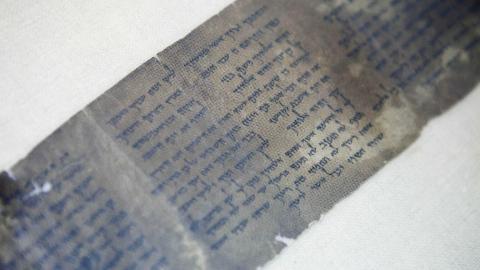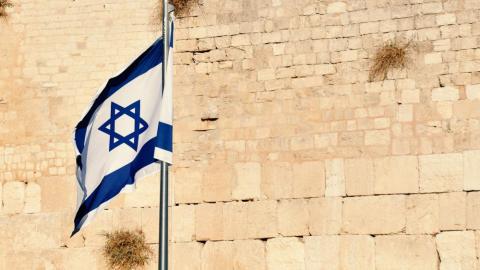
How Was the Bible Created? Filmmaker Explores Proof, Veracity of God's Word
The Bible — the world’s bestselling book — has shaped cultures and societies for millennia, but what’s known about its origins?
Listen to the latest episode of CBN’s Quick Start podcast
A new documentary from CBN Films, “Oracles of God: The Story of the Old Testament,” relies on reenactments, expert interviews, and stunning visuals to help bring the Bible’s history to life, with director Erin Zimmerman explaining how God placed the project on her heart.
The filmmaker recalled watching past documentaries on the Bible and quickly coming to an important realization.
“I couldn’t find one that I thought was doctrinally correct, or from a Christian standpoint, or even historically correct,” Zimmerman said. “They all seemed to come from the viewpoint that the Bible’s text is corrupt, that there was some chicanery in choosing the books, and that it was for political influence, and all of these things.”
Recognizing the need for a documentary to honor the Bible with truth and scholarship, she decided to focus on the “facts without an agenda.” And that’s how “Oracles of God” was born.
As Zimmerman dove into the Bible, she quickly realized the Old Testament’s formation was relatively quick and solidified.
Watch Zimmerman explore how the Bible was formed:
“The New Testament canon, while that took about 300 years to develop, the Old Testament, or Hebrew Bible canon, was fairly quick,” she said. “There weren’t really disputes. The Jewish people … they sort of accepted the books as they came along.”
In addition to the fact the books presented in the Old Testament were well-accepted, she was also captivated by something else.
“What really struck me was the continuity of the text,” Zimmerman said. “And this really couldn’t have been proven before 1947, when the Dead Sea Scrolls were discovered.”
The director said the film explores how the Book of Isaiah — the only fully complete scroll among the Dead Sea Scrolls — is a standard that dates back to before Christ’s life. Prior to its discovery, the oldest copy of Isaiah went back to 1,000 A.D., but the older version exhibited the aforementioned continuity.
“When they found that Isaiah scroll in 1947, they did the comparisons and they found that the two texts are 95% identical, and the other 5% can pretty much be chalked up to grammar and spelling differences over a thousand years.”
This remarkable fact makes the Bible uniquely reliable.
“What our experts say is that the Bible is the most stable of all the ancient texts there are,” Zimmerman added. “And we’ve got the proof in the Dead Sea Scrolls.”
Zimmerman said “Oracles of God” takes viewers on a remarkable journey of understanding the Bible’s unique story, with the project also having a profound impact on her own faith journey.
The filmmaker said she grew up in the church, going to Christian schools and universities. But the film opened “a whole new avenue” of proving the beliefs she had always held.
Despite persistent confidence in biblical truth, she didn’t previously have the answers needed to respond to various questions. After the project, she said she’s now able to defend the veracity of Scripture.
“I [now] see why we have to have this evidence, because there’s all kinds of claims coming against it,” Zimmerman said. “And I think it really did just show me … as Christians … the Bible says we need to be ready to always have an answer about our faith.”
She’s hoping people will watch the film and come away with confirmation the “Bible is not a corrupted text.” Zimmerman is also gearing up for a second installment of “‘Oracles of God,’ which will focus on the New Testament. And the third film will concentrate on the “creation of the canon.”
Find out more about “Oracles of God: The Story of the Old Testament.”




